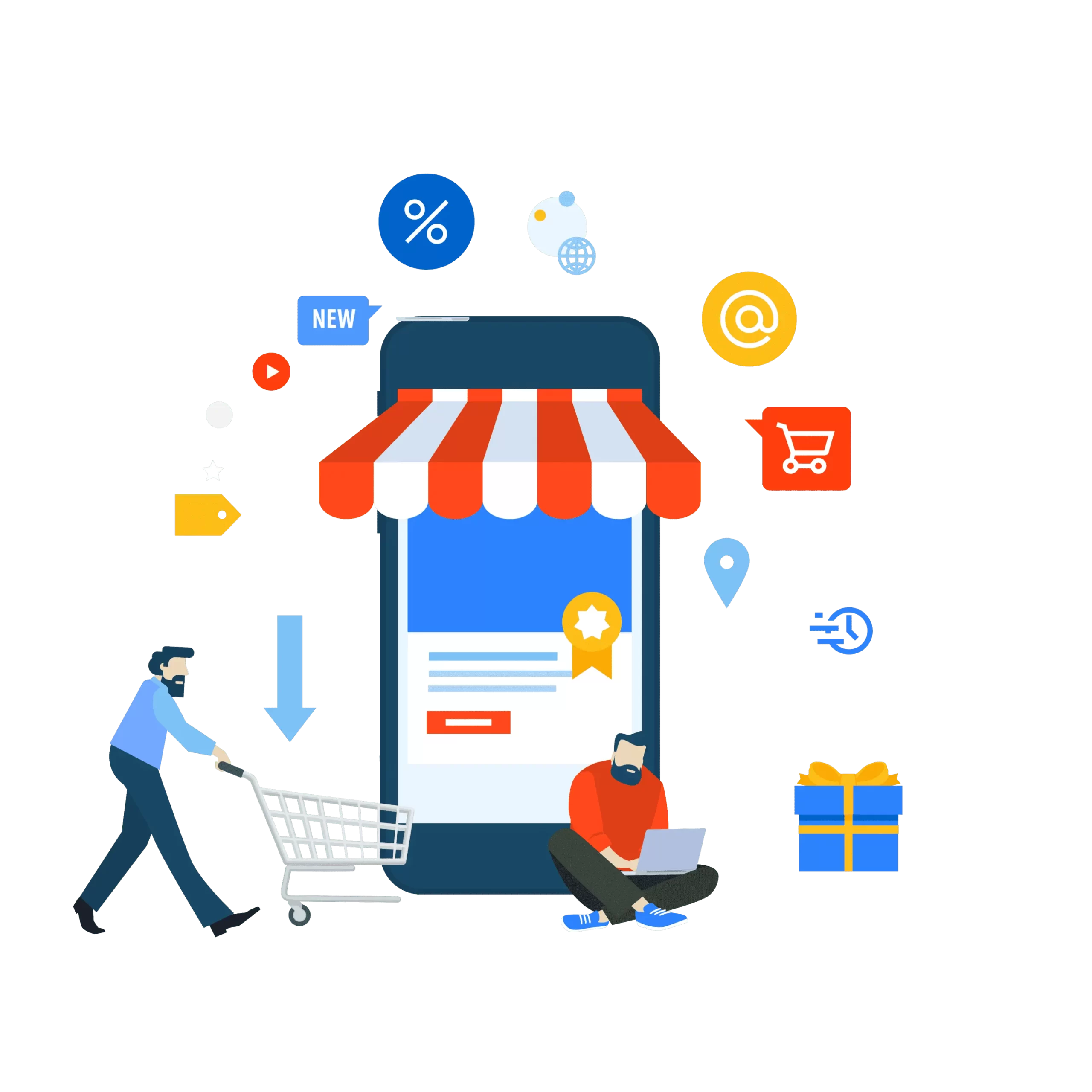Revolutionizing Online Retail with Scalable Ecommerce Solutions
At Dhina Technologies, we provide cutting-edge Ecommerce Development Services designed to elevate your digital storefront and maximize customer engagement. Our solutions are tailored to meet the unique demands of modern businesses, ensuring seamless user experiences, robust performance, and enterprise-grade security. Whether you’re looking to build a custom ecommerce platform, optimize an existing store, or integrate advanced functionalities, our team delivers results aligned with your business goals.
Comprehensive Ecommerce Development Expertise
Front-End Development for Ecommerce Success
We specialize in creating visually compelling and intuitive user interfaces that engage customers and drive conversions.
Tools and Frameworks for Front-End Design
- ReactJS: High-performance UIs with reusable components.
- AngularJS: Scalable solutions for complex ecommerce platforms.
- VueJS: Lightweight frameworks for faster load times.
- HTML5 and CSS3: Responsive designs that adapt seamlessly across devices.
Front-End Features
| Feature | Benefit |
|---|---|
| Responsive Design | Ensures compatibility across devices. |
| Dynamic Animations | Enhances user experience and retention. |
| SEO-Optimized Layouts | Boosts organic search rankings. |
Back-End Development with Powerful Frameworks
Our robust back-end solutions provide the architecture and logic to handle high traffic, data-intensive operations, and secure transactions.
Popular Frameworks We Use
- Magento: Flexible and feature-rich for enterprise-scale ecommerce.
- Shopify: Simplified setup with extensive plugins.
- WooCommerce: Integration-friendly solutions for WordPress users.
Back-End Features
- Scalable architecture for growing businesses.
- Customizable payment gateways for secure transactions.
- Advanced analytics and reporting tools for actionable insights.
Database Management for Ecommerce
Secure, scalable, and accessible databases are crucial for ecommerce success. We utilize industry-leading technologies to ensure optimal performance.
Preferred Database Solutions
- MySQL: Reliable and efficient relational database management.
- PostgreSQL: Advanced features for complex data operations.
- MongoDB: NoSQL databases for unstructured data and flexibility.
Why Our Database Solutions Stand Out
- Real-time synchronization for accurate inventory management.
- Robust encryption methods to protect sensitive customer data.
- High availability through replication and load balancing.
Ecommerce Mobile App Development
Mobile commerce accounts for over 72% of ecommerce transactions, making a robust app indispensable. We build ecommerce apps that enhance user engagement and drive sales.
Features of Our Ecommerce Mobile Apps
- Intuitive navigation and responsive designs.
- Integration with social media for seamless sharing.
- Push notifications for personalized offers and updates.
Advantages of Our Ecommerce Development Services
Key Benefits of Our Ecommerce Development Services
- Custom Solutions: Tailored to align with your brand and business needs.
- Performance Optimization: High-speed loading for better user retention.
- Scalability: Flexible solutions that grow with your business.
- Data Security: Advanced encryption to protect sensitive customer information.
Competitive Edge with Our Solutions
| Metric | Impact on Business |
|---|---|
| Page Load Time | 1-second improvement increases conversions by 20%. |
| Mobile Optimization | 85% of users prefer shopping on mobile-friendly platforms. |
Our Expertise in Ecommerce Development
Dhina Technologies stands out as the best ecommerce development company in India due to our:
What Makes Us the Best Ecommerce Development Company?
- Advanced hardware systems and high-speed internet for our developers
- Standard tools and project management software for ultimate productivity
- Highly-skilled ecommerce developers with relevant qualifications
- Prioritization of intellectual property security with NDA agreements
Contact Us
Are you looking to leverage the expertise of a top ecommerce development company in India? Contact Dhina Technologies today to learn more about our services and how we can help you achieve your ecommerce goals with our top-quality ecommerce development solutions.
GET A QUOTE
Hire Ecommerce Developers
FAQs
Explore Your Ideas With Us
Transform your business with our Full stack Development services. Achieve growth, innovation, and success. Collaborate with our skilled full stack development team today to revolutionize your digital presence!


 Google
Google
 Trustpilot
Trustpilot
 Facebook
Facebook
 Justdial
Justdial
